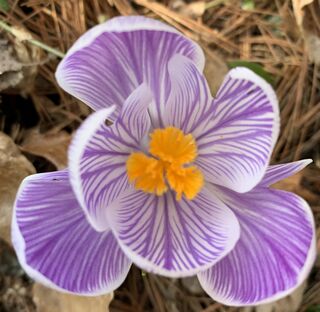Resilience
Knowing Your "Why" Will Get You Through Just About Any "How"
Having a sense of purpose can give life meaning and make you resilient.
Posted March 14, 2022 Reviewed by Davia Sills
Key points
- Having a purpose gives life a sense of meaning and helps to make and keep you resilient.
- Purpose, or vision, keeps you going even after being knocked down by one of life's punches.
- Purpose involves having a goal or ideal, something bigger than yourself toward which you aim and aspire.
What are you living for? Why do you invest your time, talent, and treasure in the things you invest them in? Are you working just to earn a paycheck, or does your work mean something more to you? Do you volunteer somewhere? Why there?
I am not asking these questions to be nosey or make idle chit-chat, but to make you think about your life and how you choose to spend your time. Not to seem grandiose, but your responses go straight to the heart of what it means to be human. They also reveal how you manage to carry on in spite of the setbacks and suffering life doles out to you—as it does to each of us in the wavering balance of joy and sorrow on which our lives pivot.
How you answer my questions reveals whether or not you have a sense of purpose and the vital role that purpose plays in giving life a sense of meaning and helping to make and keep you resilient.
Having a “why” is the key to powerful resilience.
In his profound book about how he survived the horrors of four different Nazi concentration camps, including the notorious Auschwitz, the late German psychiatrist Viktor Frankl wrote in Man’s Search for Meaning, “He who has a ‘why’ to live can bear with almost any ‘how.’”
Frankl described how the people in the camp who fared best, who managed to hold onto their sense of personal dignity and humanity amidst the most degrading circumstances imaginable, were those who had rich interior lives. Even during the back-breaking toil and deprivation that they were subjected to, they were able to focus their minds on happy memories of wonderful meals and concerts and loved ones who represented life’s blessings. The memory of those blessings was their “why,” the vision that kept them from surrendering to despair.

Our purpose, or vision, is what helps keep us going even after being knocked down by one of the punches that are as much a part of existence as the sweet moments that will become memories we savor for the rest of our lives.
Having a purpose is how we find meaning. It involves having a goal or ideal, something bigger than ourselves toward which we aim and aspire. It’s what we consider important enough to devote our energy and time to, the ultimate prize for running the race, the thing that keeps us going even if the race is not finished within our lifetime.
Discovering my own purpose
In the Jewish concept of “Tikkun Olam,” each of us is called to practice actions that contribute toward repairing and healing the world, restoring it to the harmonious state for which it was created. Tikkun Olam is frequently related to social justice and environmental awareness, though even ordinary acts of kindness and everyday relationships offer opportunities to manifest it.
Although I am not Jewish, discovering the concept of Tikkun Olam helped me understand the purpose I first sensed for myself as a young journalist reporting on the HIV-AIDS epidemic beginning in the mid-1980s. Chronicling and publishing stories of the extraordinary acts of heroism and love I witnessed in LGBTQ communities around the United States gave me a sense of contributing my time and talent to something bigger than myself.
When I found my “why,” I had a brand-new master’s degree in journalism. I was full of the youthful energy that let me bang out feature-length articles in record time. I was heartbroken at the suffering I witnessed and experienced from my own losses. And, maybe most importantly, I choose to live out my sense of “gay pride” by writing stories about the lives of LGBTQ people as being equally important, instructive, and valuable as anyone else’s—the reason I write mostly for “mainstream” publications and take particular pride that recorded interviews and notes from my HIV-AIDS reporting have been collected by the Smithsonian’s National Museum of American History in Washington, D.C., where they not only document some of LGBTQ history but comprise part of the nation’s own history.
Over the years I reported on HIV-AIDS and worked on-staff for national and global organizations addressing the challenges of the pandemic, we spoke of the “AIDS movement” to describe the massive effort to move society toward a compassionate, generous, and just response to the deadly plague that was killing our friends, coworkers, neighbors, and children. The movement offered a vision of a better world where all were equal and equally deserving of loving-kindness and respect. I was—and still am—deeply grateful to contribute to and be a part of it. It has given me a deep sense of purpose and, in some of my own dark and painful times, helped to keep me going.
Finding your purpose
Of course, we all feel different things in our lives “calling” us, inspiring us, moving us to take action. Is there something in your own life that has touched you or your loved ones in a way that sparked a desire to pitch in and help do your part? Does your faith call you to take an active part in binding the wounds of the afflicted? How do, can, or will you do that? Would having a purpose mean taking a different job? Volunteering your time? Donating money?
Knowing what matters to you, what gives you a purpose, and what gives your life meaning can make all the difference when it matters most. It can give you a reason to get up each day and to get through even challenging days that don’t seem to end. Knowing your “why” may well be the strongest force there is to let you resist even the hardest “how” life may throw at you.




